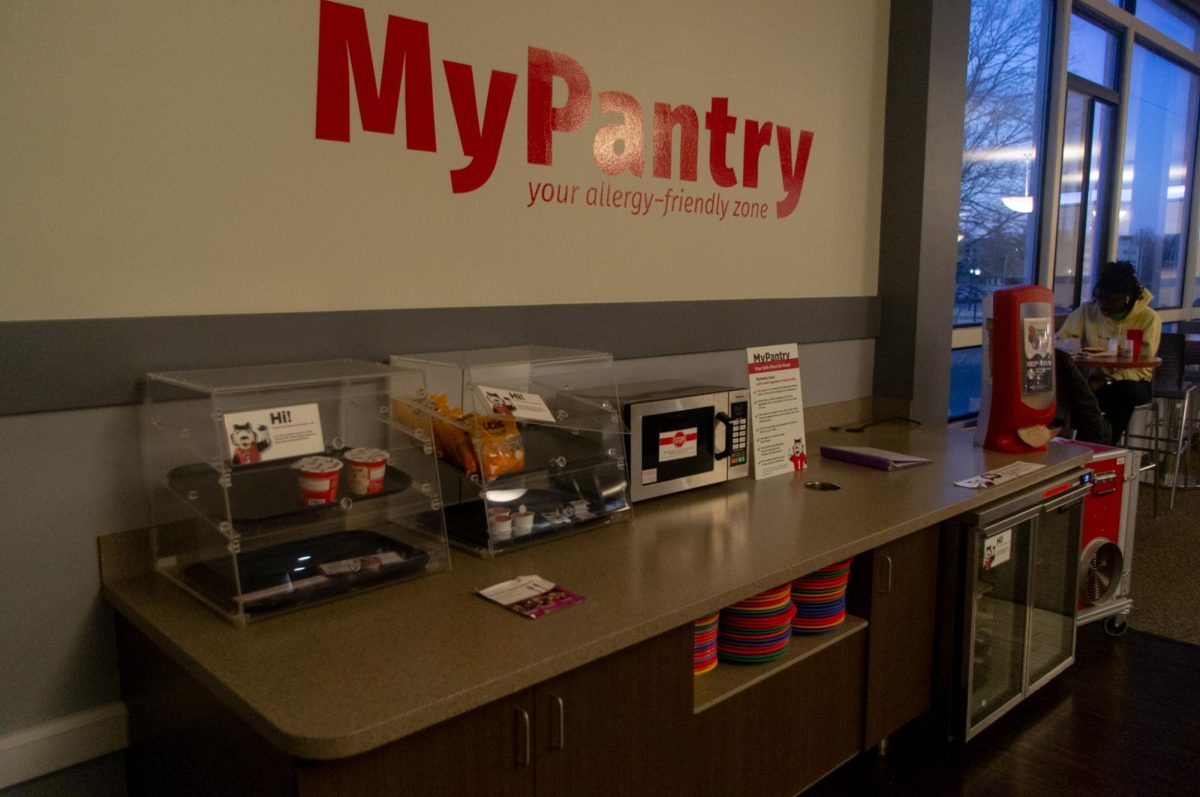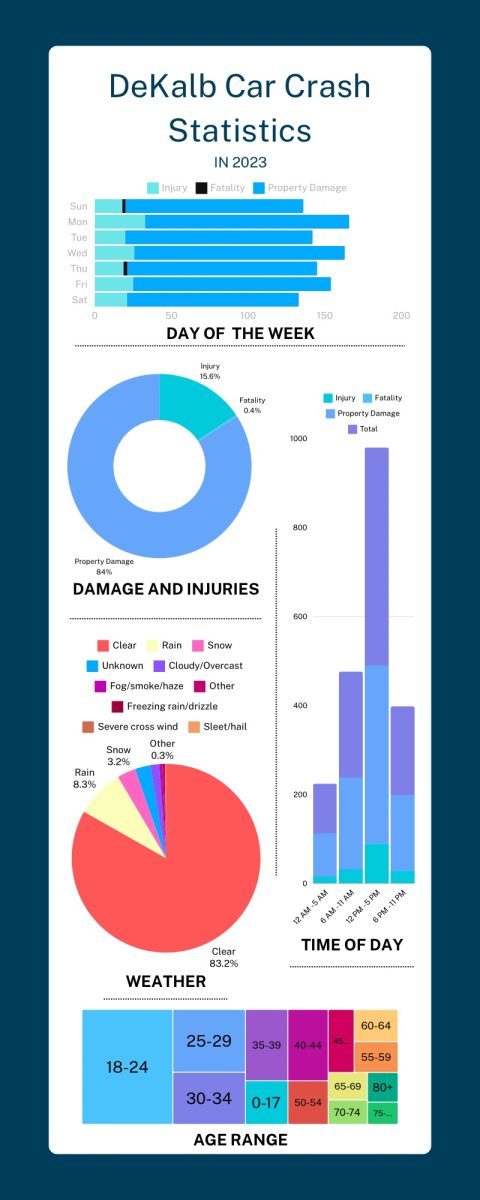DeKALB – Shae McCabe, a sophomore musical education major, does not have time to run to the closest dining hall. But as a vegetarian with anemia, she said her choices of finding high-protein non-meat items on campus are already slim.
McCabe is enrolled in her second-year with a 19-credit schedule that includes musical clinicals, a campus job and a day that does not allow her to eat until 4 p.m., two hours after Gilbert’s East Side Café closes.
Even if she could make it to the cafe, McCabe said she often does not find vegetarian items that compensate for her iron-rich diet without a trip to the grocery store.
“Unfortunately, the way that the food on campus works is that there’s not many options for someone who does not eat meat; nonetheless, someone who is vegan or has any other dietary restrictions,” McCabe said. “I know at least for Gilbert, like, the only consistent option that I have is the Uncrustables, and even then, you know, it’s just like peanut butter.”
NIU’s main allergy-friendly food options are in the MyPantry spaces located in separate refrigerators in Neptune and Patterson dining halls. The meals include allergy and gluten-free foods as well as vegetarian and vegan options to students who avoid or are intolerant to certain food groups.
While McCabe depends on MyPantry when she can’t find a meatless option, she’s disappointed by the quality of the meals.
“I tried their breakfast skillet, which is just like eggs and then some vegetables and like, when I heated it up, it was just — it smelled horrid,” McCabe said.
JJ Sullivan, a first-year electrical engineering major, is allergic to five of the nine allergens that account for 90% of all food allergy reactions. Sullivan’s body could go into anaphylactic shock if he ingested peanuts, tree nuts, eggs, seafood or shellfish.
For this reason, Sullivan will avoid a dining hall if he sees fish on the menu from the risk of one of the menu items being cross-contaminated by another allergen.
Cross-contamination is often connected with the spread of bacteria, but it can also lead to allergens being inadvertently transferred from food containing an allergen to food that does not contain it if cooking procedures are not kept separate.
NIU is responsible for providing specific food alternatives for dietary needs, allergies, and intolerances according to Meg Burnham, NIU’s Nutrition Education Coordinator.
Burnham is the head of NIU’s Nutrition Coaching team for the athletics department and collaborates with Campus Dining Services and the Recreation Center for all matters requiring food and nutrition.
Food allergies affect about 2% of adults in the United States, according to the Food Safety and Inspection Service. But, only around 15 to 20 people at NIU are registered to receive food accommodations which Burnham believes is nowhere close to the real number.
“Allergies are protected by law through the Americans with Disabilities Act because allergies are considered a disability,” Burnham said. “So, (for) our students who hold a meal plan or live with us in campus housing and are required to have a meal plan, we’re required by law to accommodate them within reason.”
One way NIU accommodates students is with custom meals.
Students can request dining accommodations through the Campus Dining Services website or by contacting Burnham directly to request meals completely catered to their dietary restrictions.
Burnham does emphasize certain employees and managers in every dining hall are certified to prepare the allergy-free meals and are trained to prevent cross-contamination.
“Let’s say an order goes through from one of our students with multiple allergies,” Burnham said. “Then the staff who decide to prepare that meal, essentially, stop what they’re doing, change their apron, wash their hands, clean and sanitize the workspace and then go ahead and prepare that meal.”
The only downside is that registered dietary restrictions must be medical or disability related so students who avoid certain groups by choice are not eligible to get custom meals.
Burnham encourages students who cannot apply for the custom meal accommodations to take advantage of the QR codes that ask students to provide feedback on the food so she and her nutrition staff can improve the menu.
For Liam Weber, a junior French horn performance major and five-year vegan, just communicating with the dining staff directly goes a long way.
“Here at Gilbert, if you’re a vegan, the only option you have by default is a peanut butter and jelly sandwich and that can get tiring,” Weber said. “And now they’ve started making these vegan breakfast sandwich options, and if you talk to them ahead of time and make sure that they know that you’re a vegan and in the area, they’ll accommodate you.”
















